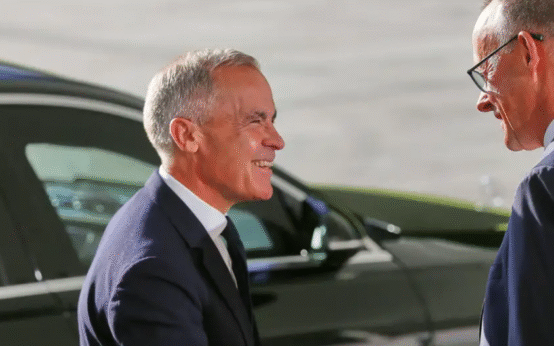North Rhine-Westphalia, Germany’s most populous state, is holding local elections on Sunday. These elections include votes for city mayors, municipal councils, and other local offices. Although local by name, many people see them as a kind of national scoreboard: how well the ruling coalition is doing, how strong the opposition is, and especially what the mood of the public is. Because NRW has nearly a quarter of Germany’s population, its results often echo across national politics.
The Rise of AfD in the West New Challenge for CDU
One of the main stories to watch is the surge of the AfD. Historically, the AfD has had most of its support in eastern Germany; in western states like NRW, it has been weaker. But recent polls show AfD’s support climbing even in urban and Catholic areas, which have not been its strongholds. The party has doubled its share of support since five years ago, reaching around 16 percent in some surveys.

For the CDU under Merz, this rise poses a dual challenge. First, it threatens vote share. Second, it pressures the CDU to respond more strongly on issues the AfD emphasizes immigration, security, local services to avoid losing voters. But responding too strongly can alienate moderate voters. Merz and his party are walking a fine line, trying to show both strength and competence without sliding too far into polarizing territory.
Economy, Local Hardships, and Voter Frustration
NRW includes parts of Germany’s industrial belt, including the Ruhr region, where many people face economic hardship: factories closing, unemployment, housing and infrastructure concerns. Over recent years, some towns haven’t shared in Germany’s overall prosperity. For many voters, the questions are immediate: Can my local government fix potholes, ensure clean schools, provide stable services.

Merz has tried to respond. A few weeks before the election, he promised that starting January 1, 2026, the federal government would help relieve municipalities’ old debts. NRW’s cities and towns carry large debts—estimated at over €55 billion in part because local governments were required to deliver welfare and public services without enough support from regional or federal budgets. That debt relief promise is intended to show that the national government is aware of these local strains and willing to act.
Coalition Pressures and National Implications
Because Germany’s government is a coalition CDU/CSU together with SPD at the national level Merz must govern not just with strength, but with space for compromise. Local elections matter partly because performance in states like NRW shapes how partners in the coalition see him. If the CDU underperforms badly, that gives SPD more leverage in pushing its priorities.
There’s also the question of what this means for policy direction: whether the government moves harder on migration, or whether it tries to balance tighter border rules with humane approaches; whether federal spending increases, or whether austerity or at least restraint becomes part of the narrative. A strong AfD showing could push mainstream parties to adjust their messaging or policy platforms, either by adopting stronger positions on law and order, or by investing more in local infrastructure and services


 Germany updates: CDU push for more voluntary Syria returns
Germany updates: CDU push for more voluntary Syria returns  Germany updates: AfD handed over half of parliamentary fines
Germany updates: AfD handed over half of parliamentary fines  Franco-German relations: Can Macron and Merz hit it off?
Franco-German relations: Can Macron and Merz hit it off?  Germany updates: Canadian and Belgian PMs visit Berlin
Germany updates: Canadian and Belgian PMs visit Berlin